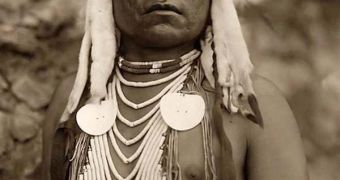Philosophers and theologians, psychologists and anthropologists have been puzzled for a long time by the human feeling of pride.
The trick with this complex emotion lies in its complexity, which differentiates it from basic emotions like fear or disgust, joy or anger, found also in most animals.
In modern western society, rugged individualism, self-reliance and personal excellence are stimulated, but too much of each can easily bias the balance toward vanity, haughtiness and self-love.
University of British Columbia psychologist, Jessica Tracy, and Richard Robins of the University of California, Davis, have explored the roots, motivation and spread of pride, both in the laboratory and in the field. They reviewed several recent approaches on the nature and function of pride, but they also developed their own experiments. During one of the tests, they asked the volunteers to detect nonverbal signs of pride in models with varying facial expressions and body language.
A prototypical prideful image was recognized by children as young as four, and people from various cultures, including individuals from an isolated, preliterate tribe in Burkina Faso (West Africa). Pride was found to be clearly universal, but its motivation was still not very clear.
The researchers asked people to enumerate some words they associated with pride. These particular words were linked to either achievement-oriented notions like accomplishment and confidence (authentic pride) or self-aggrandizement, arrogance and conceit (hubristic pride). Those experiencing authentic pride displayed high capacity of extraversion, agreeableness, genuine self-esteem and conscientiousness, while hubristic pride was linked to narcissism and proneness to shame. People experiencing positive pride regarded hard work as the key to success in life, whereas hubristic people felt success as predetermined, linked to their stable abilities.
The researchers believe that in primitive human societies, pride motivated our ancestors to act in altruistic and communitarian ways, rather for the good of the tribe than for their own, while the physical display of pride signaled to the group the individual's personal qualities, triggering a high rank and respect.
But the hubris could have been a social "shortcut," a trick meant to get unwarranted respect, a social way of cheating on behalf of those who did not have the right abilities to succeed in their society.
Anyhow, just as it happens today, this kind of respect would have been fleeting.

 14 DAY TRIAL //
14 DAY TRIAL //